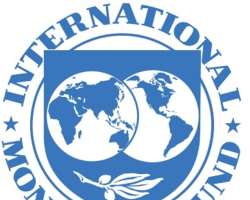Morocco – IMF Staff Conduct 2014 Article IV Consultations, First Review of the Precautionary and Liquidity Line

RABAT, Morocco, November 18, 2014/African Press Organization (APO)/ -- An International Monetary Fund (IMF) staff team led by Jean-François Dauphin visited Morocco during November 5-17, 2014 to conduct discussions with the Moroccan authorities on the 2014 Article IV consultation, as well as on the first review of economic performance under the Precautionary and Liquidity Line (PLL) arrangement approved in July 2014. The discussions focused on policies to consolidate recent gains in macroeconomic stabilization, and build the foundation for stronger and more inclusive growth.
At the conclusion of the visit, Mr. Dauphin issued the following statement:
“Sound economic fundamentals and strong policy implementation have helped stabilize the economy, in spite of the headwinds it has faced. After a bumper crop in 2013, agriculture output has come down and is expected to bring down GDP growth in 2014 to around 3 percent, despite a recent pick-up of non-agricultural activity. Inflation remains low. The external current account deficit is narrowing and should reach about 6 percent of GDP. International reserves have also improved. This performance reflects in part the rise in exports from newly developed industries as well as lower capital good and energy imports, the latter mainly because of the recent fall in oil prices. The fiscal deficit has been contracting since its 2012 peak owing in particular to measures taken by the government. Public debt has increased but remains sustainable. Progress was made over the last decade in reducing poverty, but more needs to be done to increase employment, reduce inequalities, and improve education and access to basic infrastructure. In this context, it is important that the authorities continue the reforms undertaken to stabilize the economy, strengthen competitiveness, and build the foundation for stronger and more inclusive growth.
“Growth is expected close to 4½ percent in 2015, as non-agricultural sectors continue to improve and the agriculture sector returns to a normal trend. However, the Moroccan economy still faces important downside external risks, including in relation with growth in Europe.
“The pace of strengthening public finances, notably as reflected in the 2015 draft budget that targets a deficit of 4.3 percent of GDP, is appropriate. Fiscal reforms that help sustain these efforts, reduce fiscal vulnerabilities, and create space for investment in infrastructure, health, education, and social protection are crucial to fostering higher and more inclusive growth. In that respect, the significant progress achieved in reforming the subsidy system is commendable. The reform of the pension system is urgent to maintain its viability. The adoption of a new organic budget law is also expected to strengthen and modernize the fiscal framework.
“Regarding the external sector, the continued improvement of the current account, external reserves and the resilience of the economy to external shocks, is welcome. This improvement owes in part to the emergence of new export industries, which has mitigated the impact of shocks to traditional exports. Stepped up efforts to improve the business environment, transparency, competition and governance are important to support competitiveness and potential growth. Greater flexibility in the exchange rate regime, in coordination with other macroeconomic and structural policies, would also help support competitiveness and enhance the economy's capacity to absorb shocks.
“The financial sector remains sound overall. We support the efforts of Bank Al-Maghrib to strengthen supervision, including of Moroccan banks' cross-border activities in light of the rapid expansion of some banks in sub-Saharan Africa. The adoption of new banking and central bank laws is expected to help strengthen the financial sector. The authorities' efforts to improve financial inclusion and access to credit are also welcome.
“The mission would like to thank the Moroccan authorities and all those with whom it had the opportunity to meet, including representatives of the private sector and civil society, for their excellent cooperation and productive discussions.”
Background information:
The IMF Executive Board approved a 24-month arrangement under the Precautionary and Liquidity Line in an amount equivalent to about US$5 billion (550 percent of Morocco's quota) in July 2014 (See Press Release No. 14/368).
